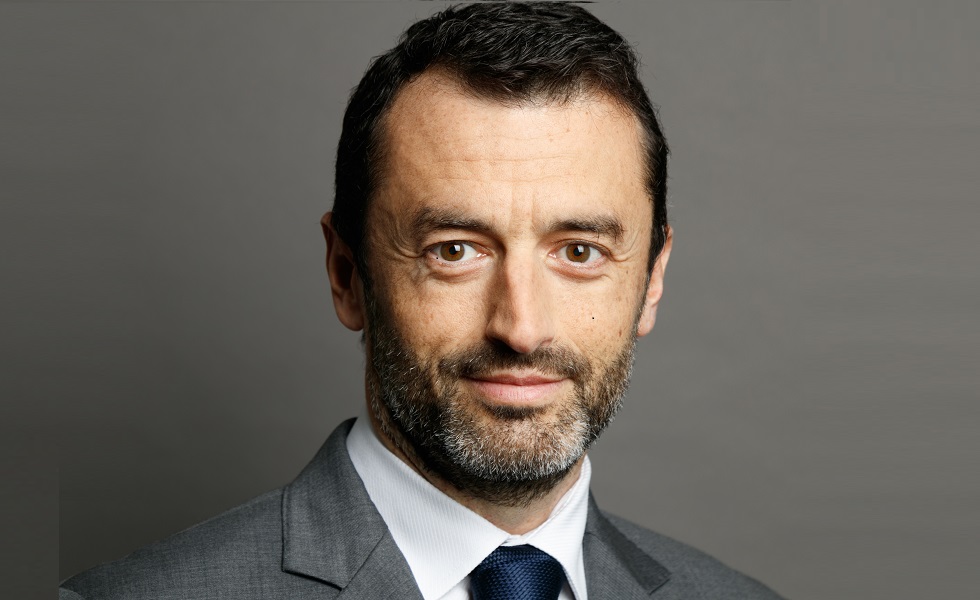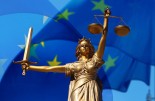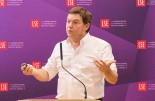Tikehau Capital: Reinforcing European sovereignty through defence investment
Tikehau Capital: Reinforcing European sovereignty through defence investment

Across Europe, there is growing momentum to raise defence budgets and mobilise funding to bolster defence ecosystems. ‘Defence and cybersecurity are key to European sovereignty’, says Thomas Friedberger, Deputy CEO and co CIO at Tikehau Capital, 'and we have developed a robust expertise over a number of years, seeking to finance this strategic sector across the entire value chain.'
By Esther Waal
When did you start thinking about investing in defence and what was the reason behind it?
‘Since the COVID19 crisis, we have held a firm conviction that economic value creation is shifting, from a focus on efficiency to one on resilience. For decades, declining interest rates and globalisation allowed economic players to optimise supply chains, capital structures and production footprints. Today, with the resurgence of geopolitical tension, higher interest rates and the trend towards deglobalisation, these same players are forced to strengthen their resilience by repatriating production close to the consumer, operating with greater equity cushions and investing significantly in the creation of resilience.
We believe defence and cybersecurity are fundamental to protecting our economic model and to preserving European sovereignty. This conviction, which we have shared publicly over the past few years, led us to expand our investment activity in aerospace, defence and cybersecurity from 2020 onwards. We’ve backed this with concrete action, such as launching dedicated private equity strategies and establishing industrial partnerships with major players in these sectors. Within our listed equities strategies, we’ve also allocated capital to defence as part of our broader ambition to support European strategic sovereignty.’
How did you (begin to) develop your expertise in this area?
‘Our expertise in defence is the product of sustained investment and ecosystem engagement. We have dedicated investment teams for both private and listed strategies and have been actively investing in the sector for over five years.
What sets us apart is the ecosystem we’ve built. We have established close partnerships with key industry leaders – Airbus, Safran, Dassault Aviation, Thales, Sopra Steria – as well as with public institutions like the French Ministry of Armed Forces, the national cybersecurity agency ANSSI, and the aerospace industry association GIFAS. These relationships offer privileged access to technological insights, policy developments, and emerging sector trends.
Our inhouse operational group includes former CEOs of defence and aerospace firms and senior military officers. Their insights help us assess opportunities and execute transactions with deep sector understanding. This multifaceted approach gives us the ability to finance key players across Europe’s defence value chain.’
What is your focus in terms of company types, themes and regions?
‘Europe has an ecosystem of defence companies that we believe are among the best in the world, encompassing both major contractors and their suppliers. These companies are not facing challenges related to knowhow, but to production capacity. In our view, the record levels reached in terms of order books offer long term visibility on the growth prospects of the sector. The listed companies in which we invest benefit fully from this outlook. Rheinmetall for example, aims to significantly increase its order book from € 55 billion at the end of 2024 to € 80 billion by the end of 2025.2 This rapid rampup in production rates is placing unprecedented pressure on supply chains. What’s needed is capital to strengthen the balance sheets of key suppliers so they can scale efficiently and meet delivery targets.
Through our private equity strategy in aerospace and defence, which now exceeds € 1.6 billion in assets under management, we support precisely these strategic suppliers. We take an active role, often controlling positions to support their growth. In parallel, we are one of Europe’s leading private investors in cybersecurity, a core component of defence, with a dedicated € 500 million3 strategy focused on digital resilience. Through this strategy, we invest in innovative companies across the entire cybersecurity value chain: from pure cybersecurity solutions to upstream technologies that accelerate innovation in cybersecurity, and in downstream technologies, such as business applications that emphasise their level of security as a key differentiator.’
What opportunities do you see in private markets versus public markets?
‘It’s not necessarily a question of private versus public. Both can play important roles in financing European defence.
In private markets, we can support strategic suppliers with longterm equity, actively shaping their development through governance, investment and industrial partnerships. This is particularly important where operational transformation or consolidation is needed.
On the public side, we have a dedicated listed equities strategy, where we apply a rigorous investment process to identify companies that we consider to have quality fundamentals and solid growth prospects. We focus on those that both benefit from and contribute to European sovereignty, while being exposed to the most promising themes in this area defence being one of them.
Ultimately, combining private and public market expertise enables us to deploy capital across the full value chain and at different points in a company’s growth trajectory.
Since the COVID-19 crisis, we have held a firm conviction that economic value creation is shifting, from a focus on efficiency to one on resilience.
How do you approach ESG considerations when investing in defence related industries?
‘In Europe, the production and trade of military equipment and related materials are governed by a stringent regulatory framework. The defence industry must also adhere to international standards. Importantly, beyond the exclusion of prohibited weapons (landmines, cluster munitions, chemical and biological weapons), there are no ESG regulations (neither in Europe nor in the UK) that restrict investments in the defence sector.
At Tikehau Capital, we view ESG and defence considerations as interdependent. However, due to the inherent risks associated with the nature of defence related products, services, and the involvement of third parties, we believe that investments in this sector require a particularly rigorous approach. In recent months, we have reinforced our ESG framework for defence to help ensure that all investments align with a strict set of standards. These include the exclusion of prohibited weapons, attention to international sanctions, and alignment with the principles of the United Nations Global Compact. We also assess and monitor a range of ESG factors throughout the investment lifecycle. These include the nature of the products and services involved, compliance with export rules, supply chain standards, human rights risks and cybersecurity.
1.Through our asset management subsidiary Tikehau Investment Management. Every investment involves risks, including but not limited to the risk of capital loss.
2 Source: Rheinmetall, annual results 2024.
3 Through our asset management subsidiary Tikehau Investment Management, data as at 31/03/2025. All investments involve risks, including but not limited to the risk of capital loss.
|
SUMMARY Defence and cybersecurity are fundamental to protecting our economic model and to preserving European sovereignty. Close partnerships with key industry leaders can offer privileged access to technological insights, policy developments, and emerging sector trends. Capital is needed to strengthen the balance sheets of key suppliers so they can scale efficiently and meet delivery targets. Both public and private markets can play important roles in financing European defence. Investments in this sector require a particularly rigorous ESG approach. |









